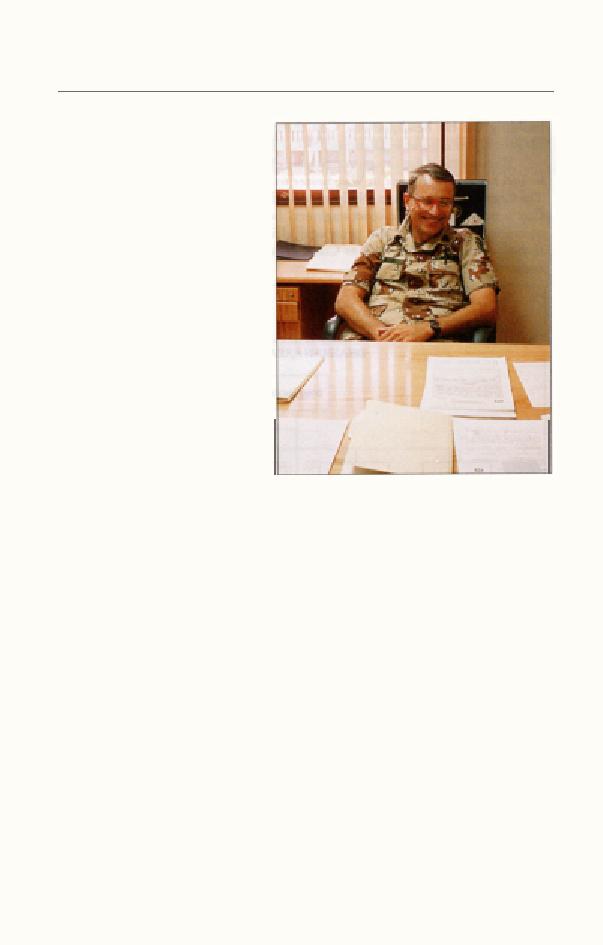
U.S. Army Engineers in the Gulf War
44
verbal taskings could change
between the evening briefing
morning
the
next
and
briefing.16
In late August, as the
number of Corps people in the
theater approached 30, Hatch
and Sobke decided they needed
a senior colonel at CENTCOM
headquarters in Riyadh. Cox
had little time to travel between
Dhahran and Riyadh. Sobke
and Hatch instructed Miller to
deploy to Riyadh and support
Specifically,
CENTCOM.
Hatch directed Miller to sort
out fragmented construction
requirements, s e r v e as the
Corps' liaison with the senior
staff at CENTCOM and
ARCENT, and be assertive as Colonel Eilliam Miller, commander of MEAPO(SWA),
Department's set up operations at CENTCOM headquarters in
the Defense
contract construction agent. Riyadh.
Hatch also told Miller to make
sure the Corps provided real estate support to all services, not just the Army.
Miller would not run the Corps' operation in the theater but would act as its
senior representative. He would set up a small organization in Riyadh and leave
Cox to manage the day-to-day operations from Dhahran.17
Miller arrived in Riyadh the evening of 1 September to find chaos at
CENTCOM headquarters. Staff officers were staking out claims for office space
and equipment. Both the ARCENT and CENTCOM staffs were preoccupied
with finding desks, office space, and telephones, leaving little time for engineer
planning. Miller convinced the CENTCOM engineer, Colonel Braden, who had
just arrived, that he needed to be nearby and adeptly located himself next to
Braden in the Gulf Cooperative Council building.
The day after his arrival, Miller visited with Brigadier General Abdulaziz
Al-Otaishan, the director general of the Ministry of Defense and Aviation's
General Directorate of Military Works, with whom he had worked as a young
officer during the Saudi construction of the 1970s. In a cordial but strained
two-hour meeting, the old friends discussed engineer support of Operation
DESERT SHIELD. General Al-Otaishan indicated that he would provide "full
support to the United States, anything needed," but complained that U.S.
commanders had not effectively made their requirements known. Later that



 Previous Page
Previous Page
